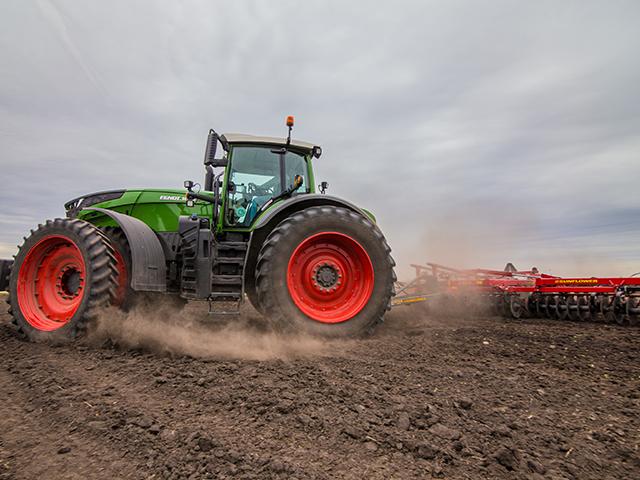MachineryLink
Machinery Industry Sees Growth Building on 2020 Successes
Farm machinery manufacturers performed remarkedly well against the COVID-19 pandemic in 2020. In fact, annual sales of tractors and combines in 2020 exceeded sales in 2019. This according to the Association of Equipment Manufacturers (AEM). AEM represents the off-road machinery industry.
Robert Crain, AEM vice-chair and senior vice president and general manager North America for AGCO Corporation, said the economy and machinery industry continues to improve after the initial disruptions of COVID-19. There is some evidence the expansion has been the quickest recorded in more than two years. Surveys show growing optimism among U.S. farmers for making significant investments in equipment -- perhaps the largest the industry has seen since 2015.
The national farming fleet is as "old as we have ever seen it," said Crain. "It is ready for replacement. [The numbers] suggest positive manufacturing performance, especially for ag in the coming months."
Crain sat on an AEM panel that discussed machinery production, technology and trade issues for 2021.
Tractor sales were fairly remarkable in 2020. Ag equipment manufacturers sold nearly 50,000 more tractors and combine units in 2020 than in 2019 across North America. Tractor sales in the U.S. were led by tractors 100 horsepower and below. Sales of those tractors topped 265,000 units -- an increase of 16% over 2020. Combine sales for all of 2020 rose 5.5%.
Sales of tractors more typically found on commercial farmers rose by 709 units over 2020. That includes tractors of more than 100 hp (19,165 units sold) and four-wheel drive tractors (2,992 units sold).
The pandemic had an outsized impact on manufacturers, Crain said.
"The pandemic has changed 100% how we reach our customers -- and the expectations of our customers in how we support them," he said. "Digital communications, taking care of parts and service needs has changed 100%. It's been a steep, steep learning curve for our dealers, our distribution network. But we're making significant progress."
P[L1] D[0x0] M[300x250] OOP[F] ADUNIT[] T[]
Steve Berglund, AEM chair and executive chairman for Trimble Inc., said the pandemic may have reversed decades-old thinking about just-in-time inventory management.
"[Just-in-time] made the industry more efficient, but the experience of the last 10 months has put into question some of the guiding principles of manufacturing," Berglund said. "In the event of something like the pandemic, it makes the ability to deliver a more difficult proposition."
Berglund speculated that manufactures may adopt inventory management practices that enable manufacturers to better weather historic events such as COVID. He expects, too, that the industry will reexamine its dependence on single-source suppliers.
TECHNOLOGY
The panel discussed its infrastructure and technology priorities for 2021.
Expanding broadband services, especially mobile broadband, is a key infrastructure need, they said.
"For our customers to be able to take advantage of, to be competitive worldwide with the latest and greatest technology, rural broadband is going to be a necessity for our customers to be competitive," said Crain.
Berglund added: "The machine as defined in terms of horsepower and inherent capacity is no longer necessarily the driving issues. [It is] how well that machine fits into an information architecture ... so that the entire farm [is] being managed together. I think there is a whole level of challenge there."
Without a robust wireless connection to farms, managers and employees, "You deprive work crews in remote areas access to [big data] applications," Berglund said. "Mobile enables the new generation of applications. Without connectivity, you simply cannot use all of the available technologies."
TRADE
The panel also discussed trade. AEM is highly interested in the incoming Biden administration's trade plans. Its members do not support routine use of punitive tariffs as a method for opening trade opportunities.
"It goes without saying that pro-growth trade policies keep U.S. equipment manufacturing strong and keep our workers employed," Crain said.
Off-road manufacturers employ 2.8 million jobs in the U.S. Thirty percent of all equipment made in the U.S. is destined for export.
"Current conditions and sentiments are positive for industry growth in 2021, but the creation of equitable, long-term trade negotiations beneficial to U.S. farmers and manufacturers continue to be of critical importance to maintaining positive momentum."
Dan Miller can be reached at dan.miller@dtn.com
Follow him on Twitter @DMillerPF
(c) Copyright 2021 DTN, LLC. All rights reserved.






Comments
To comment, please Log In or Join our Community .